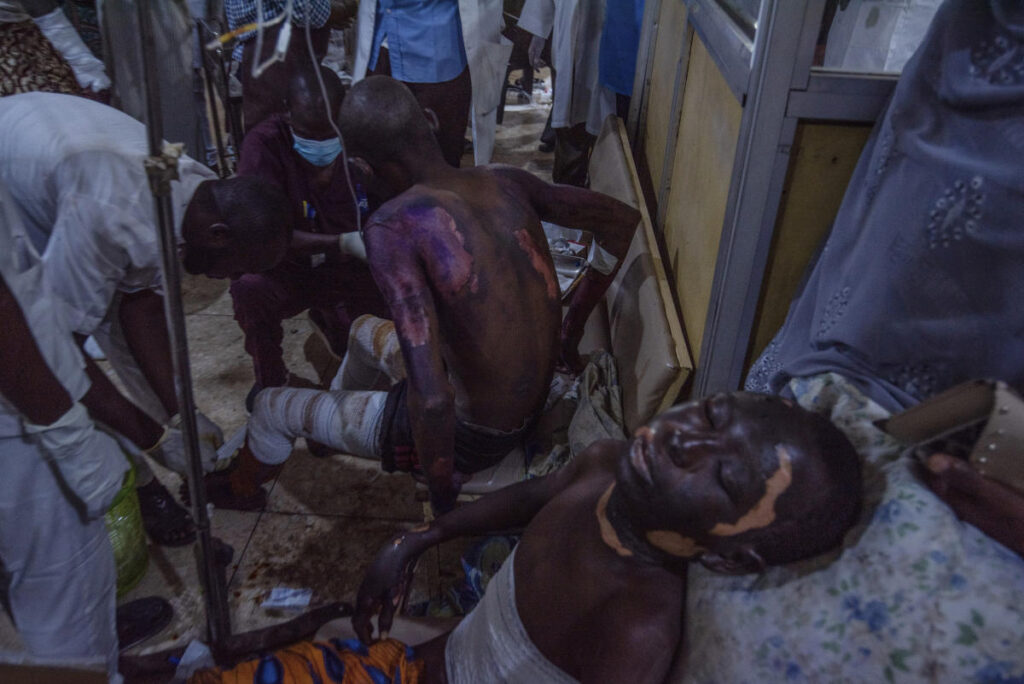ABUJA, Nigeria (AP) — Nigerian authorities have announced measures to correct errors that resulted in the deaths of more than 140 people on Wednesday in an explosion as they tried to retrieve fuel from an overturned fuel tanker in one of the West African country’s deadliest ever traffic accidents.
Most of the victims in the accident in Jigawa state were burned close to the tanker, but some were caught in the fire as they tried to help others, witnesses said. It’s one recurring disaster in one of Africa’s largest oil-producing countries, where tankers are the main source of interstate fuel transportation.
Nigeria’s Federal Road Safety Corps has issued a nationwide order to implement minimum safety standards for fuel tankers before they are allowed on the roads, spokesman Olusegun Ogungbemide said.
Nigerian President Bola Tinubu also said he is committed to a “swift and comprehensive” review of fuel transportation safety protocols across the country, according to a statement issued by his office on Wednesday evening.
The latest accident happened at midnight when the tanker driver lost control of the vehicle in the remote town of Majiya, where emergency services could not arrive until several hours later, said Dr Haruna Mairiga, head of the Jigawa disaster management office.
Danladi Umar, one of the survivors, said those who escaped the fire tried to intervene and help the others, but the fire quickly spread and overtook them.
“Bikers and passers-by (also) died as a result (and) others died while trying to save their friends and relatives,” Umar said.
One of the victims was the 15-year-old son of Muhammad Shu’aibu Majia, who he said also tried to help others. Majia’s second son was also affected and is being treated for severe burns.
At a government hospital in Kano where the seriously injured were sent on Wednesday evening, Majia joined other parents who all looked excited. Some had mats, indicating they had spent the night in the hospital building.
“It is the will of God. They tried to save some victims there when they were also hit,” Majia said of his children.
Overturned fuel tankers are a common sight on many Nigerian roads, sometimes cluttering traffic during the day. According to Nigeria’s Federal Road Safety Corps, there were more than 1,500 such accidents in 2020, resulting in 535 deaths.
Many of the victims in such accidents are people trying to salvage fuel to store at home, a practice that continues despite safety warnings. Many Nigerians already face high rates of poverty and hunger rising fuel prices That has tripled since the government ended expensive gas subsidies last year.
A major cause of such accidents, and why they usually lead to explosions, is that many petrol tankers are not designed according to international best practices, says Timothy Iwuagwu, chairman of the Institute of Safety Professionals of Nigeria.
Most tanker drivers are not properly trained on safety measures such as not overloading and adhering to speed limits, which makes accidents so common, Iwuagwu said.
—-
Umar reported from Kano, Nigeria. Associated Press journalist Dan Ikpoyi in Lagos, Nigeria contributed.

